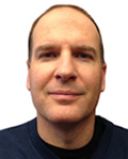
Decision-Making
My Dad's Silly, Simple, Crazy Way to Make Decisions
How my mom's death revealed the genius in my dad's decision-making
Posted June 17, 2015
I am supposed to be an expert on decision making. I have a PhD. I run the Georgetown Institute for Consumer Research. I have published papers on decision making in top peer reviewed journals. But it was my father, a man with none of these credentials, who taught me what arguably might be the best way to make important decisions.
It was September 29th, 2014. We were driving around my hometown, Kenosha, Wisconsin somewhat aimlessly (from my perspective), looking at plots and crypts for my mother. Kathy Carlson, my mom, a lifelong teacher and family leader, had passed away that morning after a long battle with cancer.
In our family, my mom was the decision maker. She was a formidable force that brought order, competence, and thoughtfulness to every choice.
My dad is different. He’s emotional. He sings to birds. He would like to paint. I always thought that he would have made an excellent musician. I like to think of my dad as a poet born into a society that values machismo. He drives a truck. He plays golf with his buddies. He once won two chests full of scuba equipment in a pool game. (That’s right, we had a harpoon gun in our basement when I was a kid.) One year he shot 67 in the final day of the Kenosha County Open golf tournament to nearly win it. He’s a gamer. He’s a gamer poet.
For most of my youth, my father and I would clash. Like my mother, I would take the rational approach to life and decision making. My father, in contrast, would react to his feelings. We would fight over the silliest things and no amount of rational argument would change his opinion.
I can’t be sure about this, but I think my mom’s need to make decisions drove my dad’s decision making strategies into hibernation. In fact, I can’t remember an instance, aside from golf club purchases, where he made a decision without my mother having an influence on the process. To me, his approach to selecting golf clubs was mind numbing. He wouldn’t read about the clubs or get fitted for them. Rather, he would talk to everyone who would listen about what he was in the market for. He would go to the local golf shops and ask them what they thought about various clubs. When he finally got to the point of seriously considering a set of clubs he would ask his golfing buddies what they thought about them. He would also ask about other sets he wasn’t seriously considering. The process seemed to take forever. I always figured that the process was a kind of hobby. He liked talking about clubs with people, so he would use his status as a prospective buyer to engage the guys at the golf shops. While I’ll admit there is some truth to that, I now believe that my dad is a decision making genius.
Back to our drive. So there we are driving around my hometown looking at crypts and plots and all I can think is that we’re using this journey to avoid dealing with reality. I keep trying to solicit my father’s values. I ask questions like: “Do you want mom in crypt or in the ground? Where are you more likely to visit her? Will others visit her?”
It was like pulling teeth. My dad was entirely disinterested in my approach. My older brother played along with my dad. Then it hit me. I’ve always had my mom to make sure that family decisions are made rationally. And now that she’s dead, reason is gone and we are left without a way for my dad to make a decision. But the next 24 hours would prove how wrong I was. As the day unfolded, I learned that my dad had a pretty good trick up his sleeve for making decisions, and here’s how it went.
We visited three sites that day. We sat at each. We spoke to people at each. We got pricing for each. We spoke with each other about what mattered. We got nowhere. We went home. My dad took “sorry for your loss” calls from friends and relatives all day. On each call he spoke of the places we visited that day, how amazingly expensive it was to die, and what he was thinking about doing with my mom’s remains. I only heard his side of most conversations, but that was enough. I wasn’t enjoying how everyone now knew we were incapable of making what I considered to be a fairly straightforward decision.
Then something unexpected happened. Unexpected but amazing. My dad was speaking to my mom’s oldest brother, Uncle John. During the conversation, Uncle John mentioned a veteran’s cemetery just northwest of town that my dad and mom might be eligible for due to a stint my father had done in the military. (My dad had been called up to active duty in the reserves during the Cuban Missile crisis, so he was a veteran.) It turned out my dad—and therefore my mother—was eligible. We paid a visit to the cemetery the following day. It was perfect. The view was great, it was well kept, and the price was significantly more reasonable than the others. My dad was sold. And so was I…but not on the Veteran’s Cemetery. Sure, that was great, but I was sold on the approach.
For the first time outside of golf clubs, I got to see my dad’s approach to making a decision play out in real time to a perfect result. Conceptually, my dad’s approach is as follows:
- Scan the set of available options.
- Keep an open mind (i.e., don’t fall in love with any particular option).
- Talk to everyone who will listen about what you’ve seen and what you’re considering.
- See if they know of any alternatives you’ve not unearthed.
- Bounce your intended plans off of them and see how they react.
- Use all the information you’ve gathered from the above to select an option.
The genius of the my father's approach is that it does two things that are essential to making a great decision. First, It increases the chances of surfacing non-traditional or non-market alternatives. Second, it makes use of the wisdom of crowds. Think of it like polling the audience for advice, but doing so one person at a time. The key is to be reasonably dispassionate about the alternative you are considering so you get the best information possible (your friends may not want to tell you that they disagree with a choice you want to make).
The downside is that it takes time and effort. In this case, the approach took 24 hours to play out. But it surfaced an excellent alternative that I would never have discovered had the decision been left to me. And it left my father with a feeling he had made the best choice for my mother’s final resting place. And what’s more, he had done this in a way that left him with no regrets. He regularly visits my mom’s crypt, and he’s very pleased. Pleased with where she rests—at least with that part of the situation.
Nice work, dad! Thanks for opening my mind.



